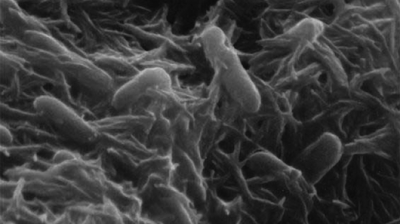The development of practical microbial fuel cells took a big step forward this week. Research conducted by a team of scientists from England's University of East Anglia was published on Monday (May 23), in which they revealed that they had discovered "the exact molecular structure of the proteins which enable bacterial cells to transfer electrical charge."
Eventually, these fuel cells could take human or animal waste and convert it into usable energy.
Eventually, these fuel cells could take human or animal waste and convert it into usable energy.
Scientists possessing this knowledge can now start working on technology for tethering bacteria directly to electrodes, which could lead to much more efficient microbial fuel cells - also known as bio-batteries.
The team utilized X-ray crystallography to determine the structure of the electron-transferring proteins, which were attached to the surface of a Shewanella oneidensis bacterium cell. X-ray crystallography involves focusing an X-ray onto a crystalline item (such as a protein molecule), then determining its structure by analyzing the angles and intensities of the diffracted beams.
Categories:
Technology














2 comments:
This is great news. This would eradicate our need for those costly fuels which we import in the middle east.
Battery from human or animal waste?? wohoooo
Post a Comment